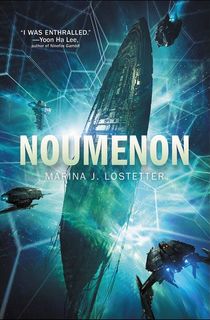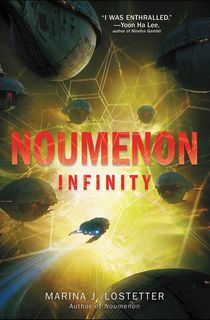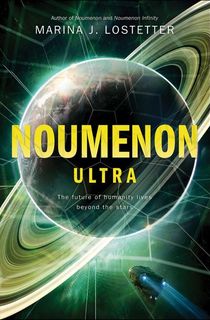In 2018 I was on a San Diego Comic Con panel entitled "Fly Me to the Moon and Let Me Play Among Those Stars." It was a fun panel. Good questions, lots of audience engagement, wonderful fellow panelists.
Nothing particularly out of the ordinary happened, and yet this panel has stuck with me, and I find myself revisiting parts of it again and again.
Particularly, the very end, where an audience member asked an excellent question about what we, the panelists, felt was a realistic vision of what humanity would be like as a civilization in space. Could humanity even make it there, or would we "never get off the rock" because we lack cooperation? On a scale of WALL-E pleasure cruise to Firefly-esque colonialism, where could we be headed?
RELATED: 10 Space Adventure Books That Will Have You on the Edge of Your Seat
The answers before mine were dire, and very well-reasoned, given many things happening around the world today and throughout history: Perhaps toxic capitalism would take over and that would be the only way forward. Perhaps we'd find an enemy out there that could unite us, make us stop fighting with each other long enough to start warring with them. As one panelist put it, we'll be the same up there as we are down here. Why expect us to fundamentally change?
But is it so unrealistic to give humanity a chance to do better? We might not deserve the benefit of the doubt, but I'm a strong believer in the root concept of the self-fulfilling prophecy: if you can't picture doing better, you're bound to fail again.
Part of my job as a science fiction writer is to picture what change looks like. It's not just about envisioning new times and places, but new ways of being — as individuals, as societies.
Science fiction as a genre posits questions about the future, then explores the implications of the possible answers. More often than not, we authors pick the more salacious or conflict-inducing answers to explore, because we are first and foremost storytellers. We want to be engaging, entertaining, and thought provoking. Stories happen when things are difficult, not when they are easy —when situations are bleak, not when they are care-free.
But optimism doesn't equal easy. Better societies don't mean care-free societies.
Stories serve many purposes, and one story can mean many things to many different people. We need all those stories that explore conflict and hardship, but we also need stories that truly suggest development and accomplishment. Progress. And not just the scientific kind.
We live in a world with many problems, and it helps to see similar problems played out to their extreme conclusions. But it also helps to see what happens when those problems have been solved, or are in the midst of being solved.
RELATED: In This Era of Change, We Must Manifest Octavia Butler's Earthseed

Because in order to actually achieve the betterment of society, one has to be able to see it. Imagine it. To feel its possibilities in one's bones. To Believe it is attainable.
And then we all have to work for it.
Optimism is often flippantly dismissed as shallow, unrealistic —as something that sounds nice but lacks substance.
Optimism, hope, empathy: these things are only fleeting when they lack force behind them, or when they're the least someone does. They become sour and turn people cynical when they're "hopes and prayers" dashed off on a senator's keyboard and nothing more.
Such parroted niceties paired with apathy leads to nihilism, an utterly useless philosophy that keeps people apathetic. These mentalities resign people to societal constructs that do not have to be.
Change is difficult to accomplish, nigh impossible, without the ability to believe in a world where that change has happened, and the capacity to demand that change. Throughout history people have imagined what could be different, what could be better. And though at times achieving that change has been a slog, it was accomplished because large groups of people sought it, through action and perseverance.
Things get better when we choose to take action to make them better.
RELATED: Charlie Jane Anders on Protecting Bookstores, and Ourselves, During Coronavirus

So why should the only "realistic" views of the future commit us to the same conflicts in space that we've had to struggle through on Earth?
Yes, people are people are people. Humans are humans. Do I think we'll shed our monstrous bits and be magically transformed into pure societies of magnanimity? No. Do I think, though, that societies can get better? That we can strive toward fewer harms and more benefits? Absolutely.
Because people have done it before.
Because there are people doing it right now.
To frame optimism as unrealistic is to ignore the efforts of people around the world who have over the centuries already done the hard work of getting us to here. The fight for civil change and civil rights is ongoing, but a hundred years ago, our panel would not have looked as it did. We people of different sexualities, genders, races, and heritages would not have been up on that stage together. Or even at the convention together. Other people did that for us, because they believed in a world where it could happen.
So I choose to honor the people who've already fought by believing there's more to come in the future. Change and progress are unstoppable, and the problems of the past do not have to haunt our future if we see it, believe it, and work for it.
Resigning one's self to the way things have always been is the antithesis of what science fiction is: a lens by which we can see possibilities, see more.
For more optimistic sci-fi, download Marina Lostsetter's Noumenon series!

Noumenon
In 2088, humankind is at last ready to explore beyond Earth’s solar system. But one uncertainty remains: Where do we go?
Astrophysicist Reggie Straifer has an idea. He’s discovered an anomalous star that appears to defy the laws of physics, and proposes the creation of a deep-space mission to find out whether the star is a weird natural phenomenon, or something manufactured.

Noumenon Infinity
Eons later, the convoy has returned to LQ Pyx to begin work on the Web, the alien megastructure that covers the star. Is it a Dyson Sphere, designed to power a civilization as everyone believes—or something far more sinister?

Noumenon Ultra
The mind-expanding journey that began with Noumenon and Noumenon Infinity continues in this wondrous mosaic tale of deep space exploration, adventure, and humanity that blends the awe, science, and speculative imagination of Arthur C. Clarke, Neal Stephenson, and Octavia Butler.
